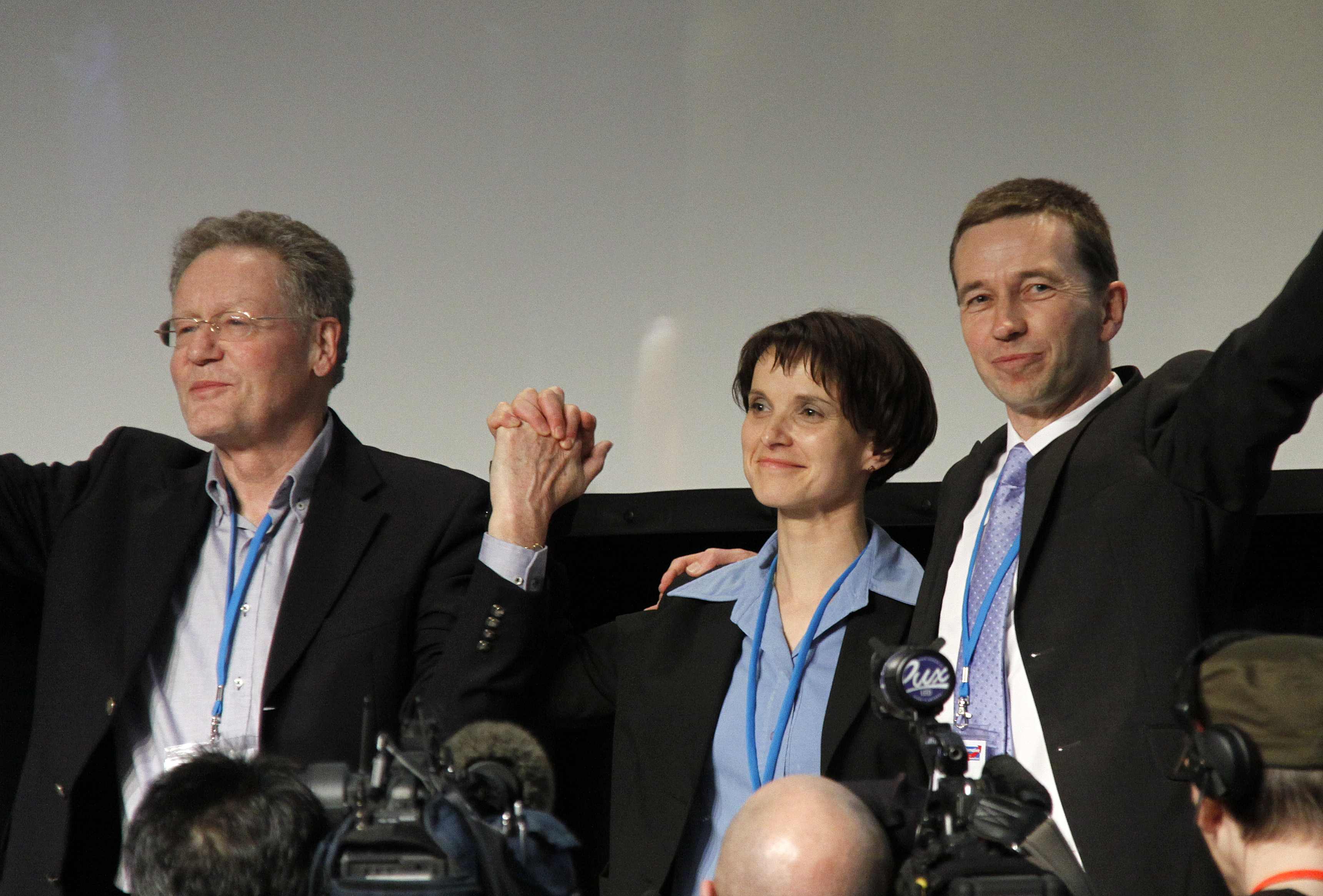How Social is Our Market Economy?
Dialogue Forum by IHK Bonn/Rhein-Sieg and CSR Competence Center
How Social is Our Market Economy?
Can market economy as a economic framework guarantee a good life for everyone? what extent is our market economy a suitable economic framework to guarantee a good life for everyone? What role do corporations play? What are guiding principles and values of entrepreneurship? What are the opportunities and limits of Corporate Social Responsibility?
![]()
Speaker
-
- Prof. Dr. Martin Booms, Director of Bonn University’s Academy of Social Ethics and Public Culture
Organizers
![]()
Hypothesis
Prof. Dr. Martin Booms hypothesizes that a dissociation between questions regarding fundamental values and norms and actual hard facts of entrepreneurial actions go against the fundamental liberal and social principles of the market economy.
Crisis of the Liberal World Order
Corporate crisis and corporate scandals have lead to an erosion of the social capital “trust” which is fundamental to every entrepreneurial endeavor to secure interaction with and by other market actors – i.e. customers, employees, suppliers, distributors.
. Martin Winterkorn, former CEO of the Volkswagen Group, resigned as CEO on 23 September 2015.
By Volkswagen AG – http://www.mynewsdesk.com, CC BY 3.0, Link
Diminishing trust in companies’ business conduct as beneficial for society gives rise to new authoritarian, nationalist and neo-protectionist tendencies, threatening liberal values.
. 
. By Gage Skidmore, CC BY-SA 3.0, Link
. 
. By Rijksoverheid/Phil Nijhuis – http://www.rijksoverheid.nl, CC0, Link
. 
. By Mathesar – Own work, CC BY-SA 3.0, Link
Liberalism – an Initial Humanistic Project
Relating to the Second Formulation of Kant’s Hypothetical Imperative, The Formula of Humanity, every rational action must set before itself not only a principle, but also an end which is the individual person.
Act in such a way that you treat humanity, whether in your own person or in the person of any other, never merely as a means to an end, but always at the same time as an end.
Immanuel Kant (1785), Grounding for the Metaphysics of Morals

By “Masters of Achievement” text, Public Domain, Link
Humanity as end and highest goal assigns an absolute value to each and every human that can not be subordinated to anything else. This is the legitimating ideology every economic and social endeavor has to be weighted against. In this regard, market economy’s only purpose is to serve humanity and every market action is a means for achievement.
Market Economy – an Initial Social Project
In a liberal market economy, individual market participants and corporations become social subservient institutions and any of their mercantile oriented actions are by nature supporting the public welfare too. This legitimizes market economy as a social project.
It is not from the benevolence of the butcher, the brewer, or the baker that we expect our dinner, but from their regard to their own interest. We address ourselves, not to their humanity, but to their self-love, and never talk to them of our own necessities, but of their advantages. Nobody but a beggar chooses to depend chiefly upon the benevolence of his fellow-citizens.
Adam Smith (1776), The Wealth of Nations, Chapter II, p. 19.

By Unknown – http://www.nationalgalleries.org 1472, Public Domain, Link
Social Market Economy – a Solution Approach?
Müller-Armack coined the term “social market economy” in his 1946 book “Wirtschaftslenkung und Marktwirtschaft ” where he argues that the free market economy can not be left to be guided by liberalism, but needs to be consciously regulated by socialism. However, the question arises if economy is indeed anti-social in itself and requires designating social responsibility to be made social after all, given that liberalism already has the individual and humanity as its end and highest goal and is social in its origin.
Social Entrepreneurship – another Solution Approach?
Gabler’s Business Dictionary defines the nascent field of Social Entrepreneurship as “entrepreneurial thinking and acting for the benefit of society and in order to tackel or eliminate social ills” [translated from German]. To supplement or rather complement this definition, one should consult Investopedia articulating that “while most entrepreneurs are motivated by the potential to earn a profit, the profit motive does not prevent the ordinary entrepreneur from having a positive impact on society.” Once again, according to Adam Smith, individuals pursuing their own best interests are by nature guided toward decisions that also benefit others and society as a whole. In this light: is entrepreneurship not already by itself social; adding the term social just plain redundant?
Corporate Social Responsibility – only an Add-on?
Preventing CSR to be instrumentalized for “Greenwashing”, economic enterprises need to move away from excluding social responsibility from their core business. They need to weave the social component into their business DNA and make it an underlying principle for an righteousness business conduct. Otherwise, any of the company’s market actions is to be considered anti-social in the end. Furthermore, in face of transgressing planetary boundaries, the safe operating space for humans, we might reach an unrecoverable level of damage that the Earth System can not recover from and eventually turns it into a less hospitable space, despite any pro-social campaign that’s trying to make up for the caused damage.
An Integrative Perspective on Companies
The newly emerged public value awareness can be interpreted as a longing for the original definition and understanding of liberalism and market economical values. With economic enterprises subjecting any economical growth to social and environmental conducive, non-economical motives, any moral criticism becomes obsolet and entreprenuerialism rather becomes a means to an end for social welfare and prosperity. Meeting those preconditions, there can exist no unsocial economical behavior.
Returning to a Market Economy
Companies striving to place humanity and the individual back at the center of their economic activities and decision making should have a look at the Economy for the Common Good. sustainable and ethics-based business practices
Based off of an evaluation matrix, the Common Good Report captures the status quo of ethics and sustainability of all economic activities within a company from a 360° perspective. It’s also the basis for an External Audit giving independent feedback that assures quality and comparability. The Common Good Balance Sheet ultimately makes the company’s contribution to the common good visible. It can also be used as a starting and evaluation point for continuous quality improvements of sustainable and ethics-based business practices.
Common Good Matrix
The Common Good Matrix lies at the heart of the Common Good Balance Sheet. Version 5.0 can be seen below.

By Economy for the Common Good
![]()




